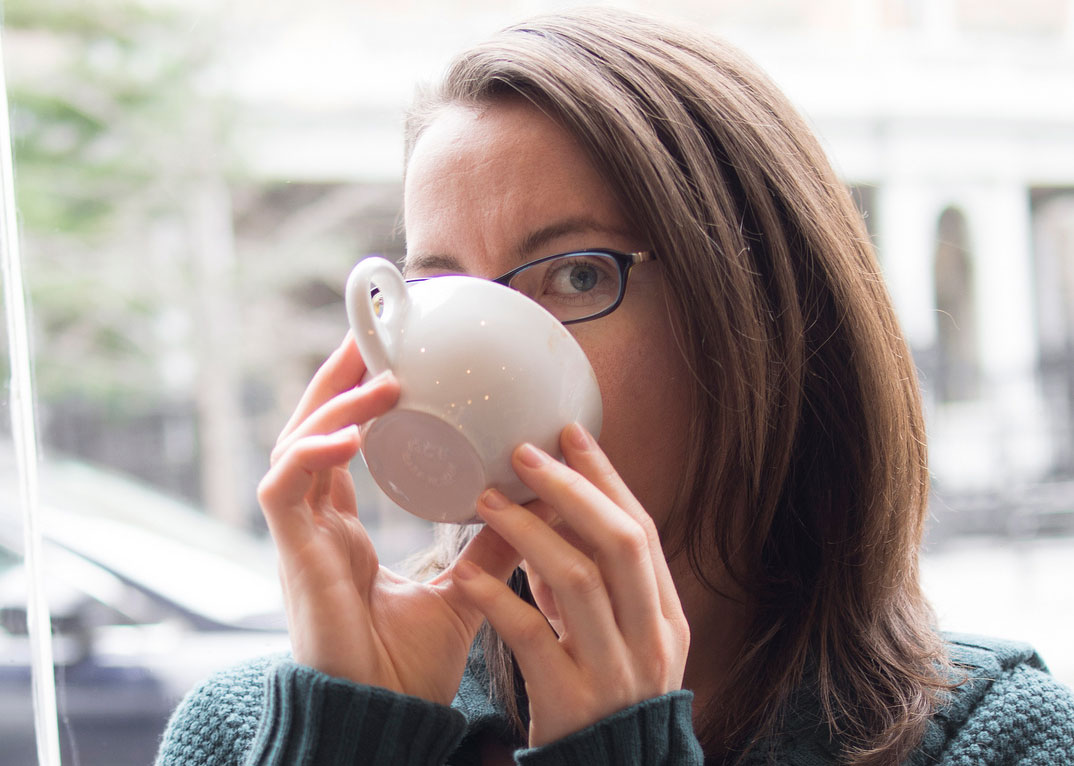By Valerie Franklin (The Cascade) – Email
Print Edition: October 29, 2014

It’s October, and like most other 20-something women, you’re celebrating by posting pictures of pumpkin spice lattes on Instagram and taking #nofilter selfies in the fallen leaves. Beware — if this sounds like you, you may be the internet’s latest favourite stereotype: a basic bitch.
For those of you who haven’t seen the College Humor video that went viral earlier this year (“How to Tell if You’re a Basic Bitch”), the basic bitch epitomizes middle-class, white-girl youth culture. She has a wedding board on Pinterest despite being single, idolizes Kate Middleton and Audrey Hepburn, posts twee Taylor Swift quotes on her Facebook, and finishes every sentence like it’s a question? Her tastes are generic, materialistic, and brand-based: Starbucks, Lululemon, North Face, Apple. If you wear Ugg boots and infinity scarves, if you genuinely enjoy Top 40 hits, if you’ve ever unironically uttered the phrase “I can’t even,” the internet now has a label for you.
And it’s not a nice label. While the basic bitch phenomenon may have started as a somewhat tongue-in-cheek description of overly trendy college-age women, it’s quickly devolved into a sincerely slung insult. Condemning articles like Ecocult’s “The Truth About Basic Bitches: They Will Ruin Your Life” have become popular, as well as a slew of men’s dating blogs warning men away from “basic” women and slamming most of the 20-something female demographic for — what? Liking traditionally girly things like sparkly nail polish and rom-coms? Appreciating the coziness of an autumn sweater and leggings?
It’s obviously unfair to pigeonhole a woman as being bland, unintellectual, and worthless based on her commercially feminine appearance and tastes. Many feminist writers and bloggers have pointed out that the term “basic” is just another way to put pressure on women for the usual crimes: being too much, not being enough. (And it’s only women; men aren’t punished for blandness, the same way they aren’t punished for sexual promiscuity.) What makes “basic” such an effective insult is that it applies in some way to practically everyone by attacking averageness — and we’re all average to some degree. Instead of building themselves into more interesting individuals, people use the word “basic” to push away what they fear being: boring, predictable, mainstream.
The problem is that the basic bitch isn’t judged for the way she behaves or thinks; she’s judged for the way she presents herself to the world. Under her shell of Lululemon gear, that basic bitch in the hallway might be a scholarship-winning polyglot who does AIDS relief work overseas. Who knows?
Calling someone basic also rings of snobby hipster sentiment: if too many other people like something, whether it’s a drink or a musician or a clothing style, it’s no longer cool to enjoy it. It’s an attitude that makes people afraid to be caught loving something, and builds a culture of negativity where pretending not to be passionate about anything keeps you from being vulnerable to others’ opinions, giving you power. It’s insecure and immature and verges on bullying.
What a shitty world it would be if we all thought like that.
Fortunately, we don’t. “We’ve reached a tipping point where there is something incredibly refreshing about admitting that you love what is popular,” Daisy Buchanan writes in the Guardian. The geek movement is a prime example: a subculture where members unabashedly love what they love despite others’ opinions.
“Being a geek is all about being honest about what you enjoy and not being afraid to demonstrate that affection,” actor Simon Pegg said famously last year. “It means never having to play it cool about how much you like something.”
Let’s take a page from the geeks and try not to care so much about what the world thinks. It doesn’t matter what some blogger says — you’re entitled to love your leggings, Friends boxed set, and “Live, Love, Laugh” wall plaque as much as you like. Is liking average things really worse than being afraid to enjoy yourself?
No, materialism isn’t great. No, trendy cultural appropriation of symbols like the yin-yang or the hamsa — another hallmark of the basic bitch’s taste — is never cool. But let’s stop slamming people for their tastes, and start realizing how cool it is that we all like the same stuff.
Now go drink your pumpkin spice latte and reflect on the #blessed life you lead, if worrying about being basic is the worst of your troubles, and let’s try to forget this term ever existed.


